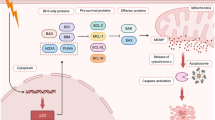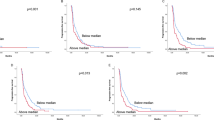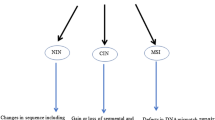Abstract
Mutations in p53 change the sensitivity to cancer chemotherapeutic drugs. Whereas many drugs, including the vinca alkaloids, often become less effective when p53 is transcriptionally inactivated, several, most notably paclitaxel, may become more effective. In studying the underlying mechanism(s), we found that increased MAP4 expression, which occurs with transcriptionally silent p53, is associated with increased sensitivity to paclitaxel and decreased sensitivity to vinca alkaloids. Using murine fibroblasts transfected with MAP4, we directly demonstrated that the changes in drug sensitivity were associated with parallel alterations in drug-induced apoptosis and cell-cycle arrest. Immunofluorescent staining of the microtubule network revealed that cells with increased MAP4 expression displayed an increase in polymerized microtubules and an increased binding of fluorsceinated paclitaxel. Since MAP4 stabilizes polymerized microtubules, overexpression of this gene provides a plausible mechanism to explain the altered sensitivity to microtubule-active drugs in the presence of mutant p53.
Similar content being viewed by others
Author information
Authors and Affiliations
Rights and permissions
About this article
Cite this article
Zhang, C., Yang, JM., White, E. et al. The role of MAP4 expression in the sensitivity to paclitaxel and resistance to vinca alkaloids in p53 mutant cells. Oncogene 16, 1617–1624 (1998). https://doi.org/10.1038/sj.onc.1201658
Received:
Revised:
Accepted:
Published:
Issue Date:
DOI: https://doi.org/10.1038/sj.onc.1201658
- Springer Nature Limited
Keywords
This article is cited by
-
CKT0353, a novel microtubule targeting agent, overcomes paclitaxel induced resistance in cancer cells
Investigational New Drugs (2020)
-
Hsa-miR-210-3p expression in breast cancer and its putative association with worse outcome in patients treated with Docetaxel
Scientific Reports (2019)
-
The impact of pharmacokinetic gene profiles across human cancers
BMC Cancer (2018)
-
Identification and characterization of SSE15206, a microtubule depolymerizing agent that overcomes multidrug resistance
Scientific Reports (2018)
-
ERK mediated upregulation of death receptor 5 overcomes the lack of p53 functionality in the diaminothiazole DAT1 induced apoptosis in colon cancer models: efficiency of DAT1 in Ras-Raf mutated cells
Molecular Cancer (2016)




